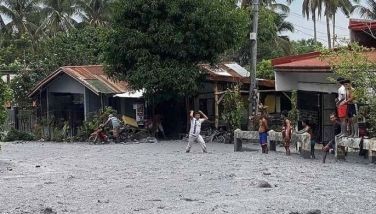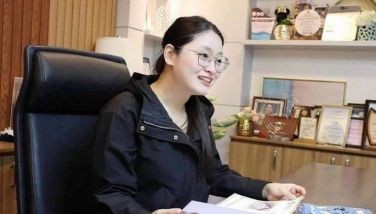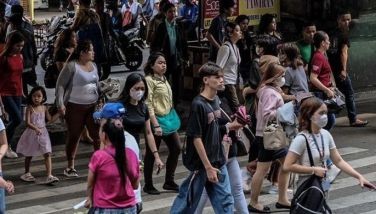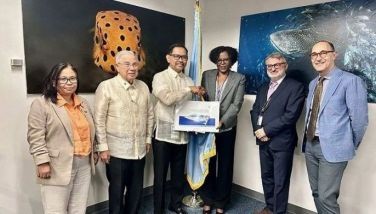DSWD eyes partnership with DepEd for reading tutorial program
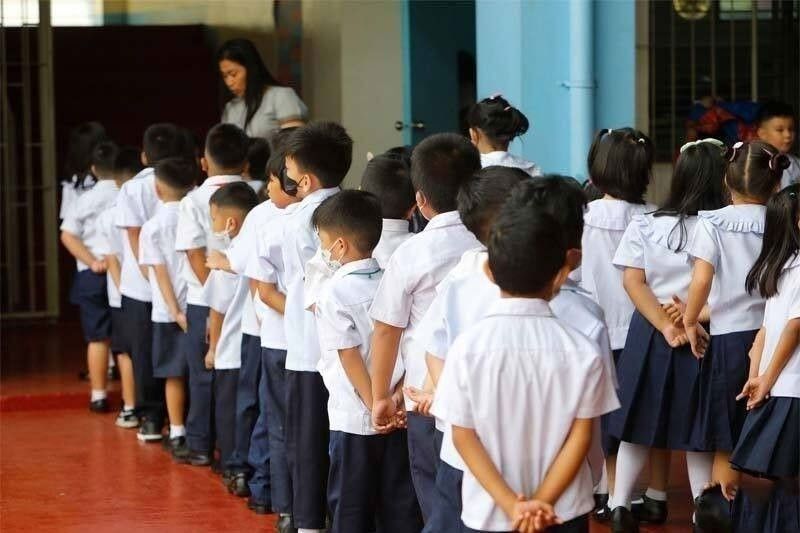
MANILA, Philippines — The Department of Social Welfare and Development (DSWD) is looking at partnering with the Department of Education (DepEd) now that the pilot implementation of the “Tara, Basa!” tutorial program has been completed.
According to Social Welfare Secretary Rex Gatchalian, the agency is ready to collaborate with DepEd “to support its learning programs geared at reducing illiteracy in the country.”
Gatchalian said Pasig Rep. Roman Romulo, chair of the House committee on basic education and culture, is supportive of the agency’s plan to partner with DepEd to promote literacy.
“As Congressman Roman mentioned, all the reforms are there, and we just want to convey to DepEd that in any of those reforms where you may need the department because you know that we have a bit of financial capacity to incentivize beneficiaries, please do not hesitate to ask because we are ready to partner with all your learning programs,” he noted.
Gatchalian had recognized the role of DepEd to make the tutorial program successful. He added that while DSWD does not have the “core competence” when it comes to education, they can always support DepEd in its programs.
Under the tutoring program, the DSWD was able to assist 31,234 struggling and non-reader elementary learners and another 31,207 parents and guardians through reading and parenting sessions conducted by trained college students.
The agency also provided cash-for-work to 6,101 2nd- to 4th-year college students from select state universities and colleges as well as local government-run universities in the National Capital Region, belonging to low-income families, in exchange for services rendered.
“We wanted to reformulate our education assistance program but we needed the technical expertise of DepEd because as you all know, we are in the area of social welfare and development,” he maintained.
Digitalization
The government should accelerate digitalization to ensure that Filipino learners will have adequate and quality learning materials, Sen. Sherwin Gatchalian said.
Gatchalian said the 2022 round of the Program for International Student Assessment (PISA) showed that compared to other Organization for Economic Cooperation and Development (OECD) countries on average (-0.17), the index of shortage of educational materials in the Philippines was relatively high (0.71).
He said a one-unit increase in the index of shortage of educational material resulted in a decrease of four score points in mathematical performance.
“These findings, coupled with the country’s experience during the pandemic, underscore the need to bridge the digital divide and adopt digital education to make the sector more resilient and innovative,” he added.
He also emphasized the need to ensure learning continuity even in the midst of disruptions.
He said the triennial assessment of 15-year-old learners also showed that 55 percent of students attended schools where principals reported a lack of educational materials, including textbooks, information and communications technology equipment, library or laboratory materials.
Forty-nine percent of students were in schools whose principals reported inadequate or poor-quality educational materials.
Gatchalian said six out of 10 students attended schools where principals reported a lack of digital resources (63 percent) and inadequate or poor-quality digital resources (63 percent), which include desktop or laptop computers, internet access, learning management systems or school learning platforms.
He added the 2022 PISA, however, also revealed that compared to OECD countries, Filipino students reported a more positive experience with home-based learning.
Seventy-nine percent of learners reported that distance learning improved their skills in using digital devices for learning purposes, while 83 percent said their teachers were well prepared to provide remote instruction.
The senator said 15-year-old learners also spend approximately 10.7 hours on digital resources, six for learning and 4.7 for leisure. He said every one-hour increase in time spent per day on digital devices for learning at school led to a three-point increase in math scores but resulted in a four-point decrease when used for leisure.
Gatchalian’s bills that seek to accelerate the use of digital technology in education include the Digital Transformation in Basic Education Act (Senate Bill 383), the Philippine Online Library Act (SB 477) and the One Learner, One Laptop Act (SB 474). — Cecille Suerte Felipe, Marc Jayson Cayabyab
- Latest
- Trending

























